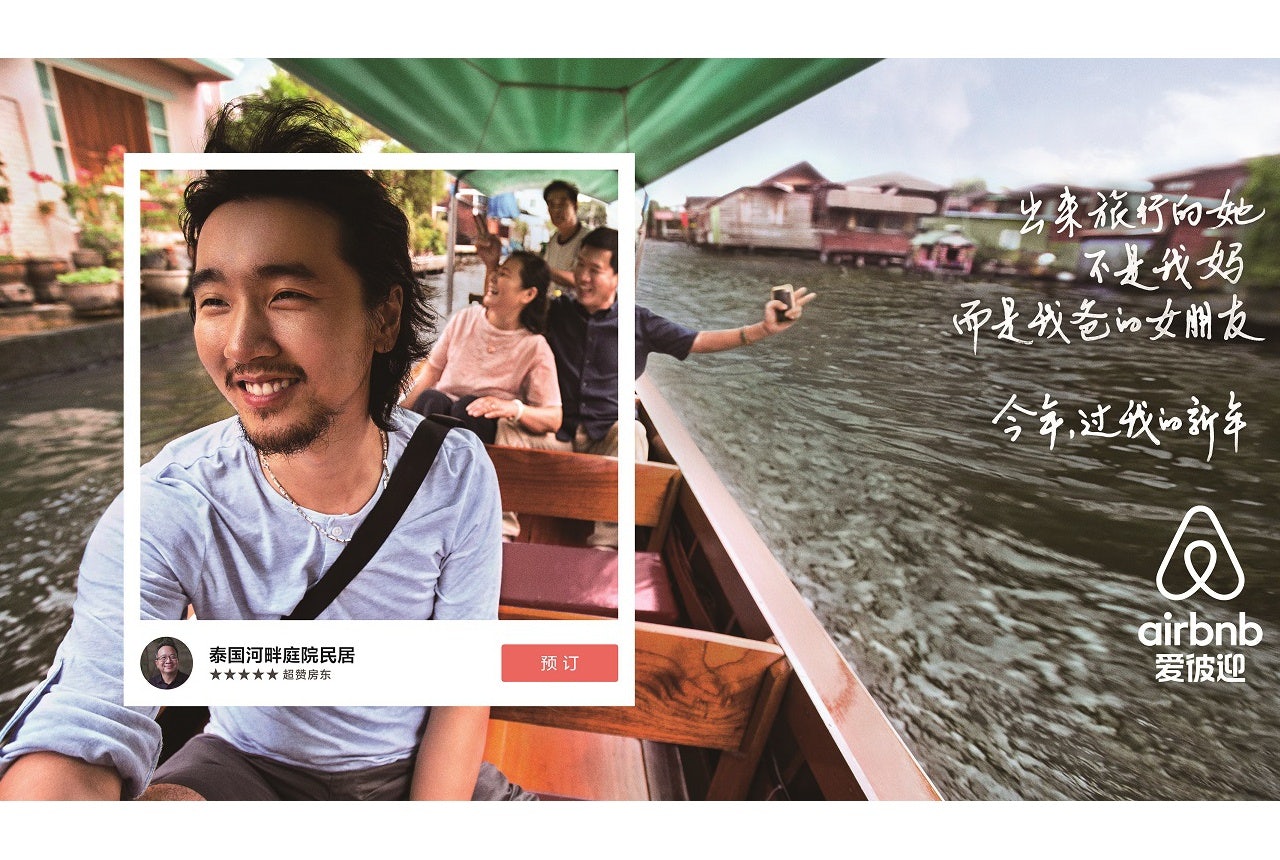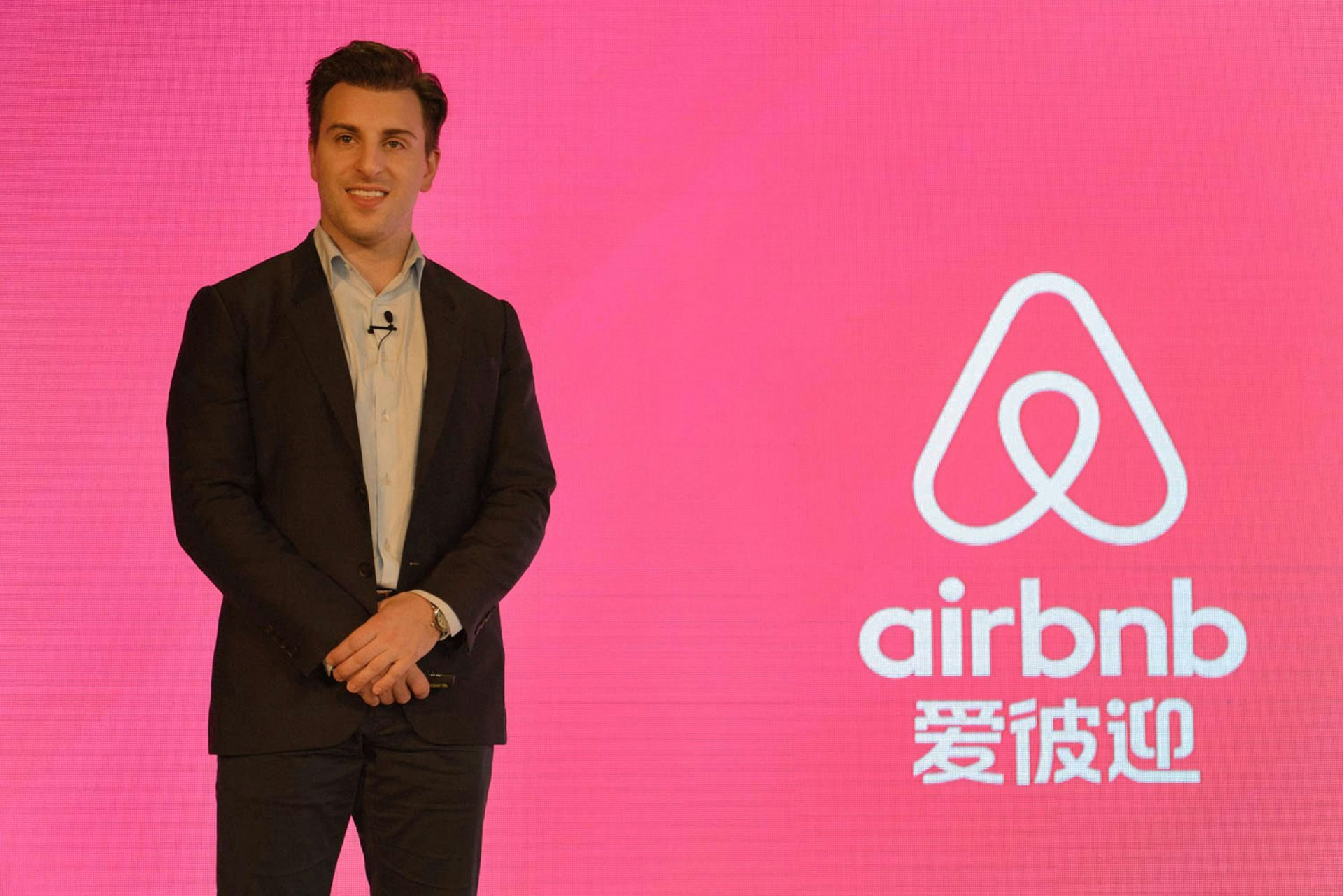As China enters one the busiest travel periods of the year, Airbnb is amping up its marketing game in a bid to attract Chinese millennials.
The home sharing company recently released its first Chinese New Year campaign, titled “Celebrate it My Way.” The campaign enlists the help of six Chinese celebrities and KOLs to invite their parents to travel overseas with them.
Airbnb also worked with popular WeMedia platform “The Fair” (新世相), which selected five millennial followers out of hundreds of applicants to “kidnap” their parents for a 48-hour trip and share their experience on social media.
Snippets from these vacations will be featured on Airbnb’s official WeChat account through the Spring Festival holiday.
“We’re trying to explore the tension millennials experience when they’re working away from home,” said Mia Chen, Head of Marketing at Airbnb China. “It’s a really unique situation to China when they’re forced to go back to their home and they have to face their parents. That’s one of the biggest gathering times and it offers very complicated feelings for millennials. For Airbnb as a brand, we asked ourselves, how do we bridge that? How do we play a role in telling millennials there is a way to get closer to their parents?”
Airbnb’s concept of redefining home for China’s young and adventurous comes at a time when the company is sitting favorably with affluent consumers in Asia, especially Chinese women.
A recent report by Agility Research showed that Airbnb was among the top 10 brands sought out by travelers, according to a survey of nearly 3,000 consumers across mainland China, Hong Kong, Japan, South Korea, Thailand, Malaysia, Singapore, and Australia. For the affluent women in China who took the survey, Airbnb was the number one brand.
The findings come as China’s wealthy travelers increasingly seek unique experiences and adventure over shopping and traditional sightseeing expeditions.
While it may seem like Airbnb, which has been facing stiff competition from local rivals, is enjoying great success, 18 to 35 year olds make up almost 80 percent of its Chinese customers. Chinese New Year becomes an opportunity to reach the older generations through its main audience.
The company wrote in a September 2017 report that Chinese families (parents and children) accounted for 17 percent of outbound travel between January and September of last year, and the numbers are growing. Airbnb cites a survey done in conduction with the China Tourism Academy that shows 30 percent of respondents “choose home sharing overseas because of its suitability for travel with families and friends.”
When it comes to enticing a millennial audience, Airbnb’s campaign also adds commentary to the unique social pressures young people face in China to “settle down.” In a recent post on Airbnb’s official WeChat account, a travel blogger addresses bringing her mother on a trip to the country of Georgia and succeeding in helping her to understand why she didn’t want to get married.
“I started traveling around the world when I was 23,” she writes. “Travel has long been a part of my life, but for so many years, my mom, like most parents in China, always wanted me to settle down and get married. But after this trip, she changed her opinion because she loved me and trusted me and didn’t want to stop me from exploring the world.”
It’s a strategy reminiscent of another emotional ad campaign released in 2017 by Japanese skincare brand SK-II, which touched on China’s phenomenon of “leftover women”, prompting worldwide discussion of how Chinese women face unrelenting pressure to get married before they turn 30. This campaign struck a major chord with consumers, and only time will tell if Airbnb’s localized efforts to relate to their younger audience will have the same results.



